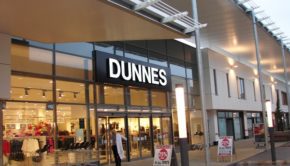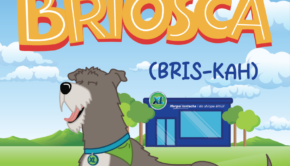January consumer sentiment bounce recovers most of December’s losses: KBC Bank Ireland

Analysis by KBC's Austin Hughes shows expectations for household income growth vary widely according to age; a majority of consumers over 55 expect their income to be lower in five years time
1 February 2022
-By Austin Hughes
Irish consumer sentiment recovered in January as concerns about the severity and duration of difficulties posed by the Omicron variant of the Coronavirus eased. This prompted a reversal of most of the weakness seen in the December reading.
The improvement in Irish consumer confidence in January contrasted with further weakness in the US and the Euro area. In part, this reflects greater earlier caution on the part of Irish consumers but it also likely owes something to increasingly positive commentary on the outlook for the Irish economy.
Reversing December drop
The KBC Bank Irish consumer sentiment index increased to 81.9 from 74.9 in December, largely reversing the sharp drop last month from the November reading of 83.1. At current levels, Irish consumer confidence is still marginally below the long-term (26 year) average of the series. So, it still speaks of a reasonably cautious Irish consumer but, importantly, one who is not insensitive to emerging positive developments.
As the survey was completed by 15 January, it doesn’t capture the substantial removal of health-related restrictions announced on 21 January. This, together with the positive tone of the January sentiment survey’ suggests scope for a marked further improvement in Irish consumer confidence in February on what amounts to the effective re-opening of many entertainment and hospitality focussed sectors.
US and Euro area
The improvement in Irish consumer sentiment in January coincided with a further modest weakening in sentiment in similar indicators for the US and Euro area. Confidence among Irish consumers was harder hit by the pandemics than elsewhere. More recently, US consumers have been more unsettled by what is proving a difficult path out of the pandemic significantly reflecting a jump in US inflation to a near forty year high of 7%.
In a somewhat similar vein, Euro area consumers previously appeared to have been quicker than their Irish counterparts to declare an end to pandemic concerns and reacted more adversely to the pandemic. As a result, the combination of a renewed increase in infection rates and sharply higher living costs have taken a significant toll on confidence of late.
The recovery in Irish consumer sentiment in January largely represented a reversal of the weakening seen in December when the emergence of the Omicron variant seemed to threaten a return to large losses in terms of health as well as economic and financial outcomes. As a result, the ‘macro’ components of the survey which saw the most severe weakening in December registered the most significant gains in January.
Encouraging Exchequer returns
Our sense is that the turnaround in these areas was helped notably by very encouraging end-year exchequer returns and unemployment data released early in January that highlighted the exceptional resilience of economic activity and the jobs market. At the margin, these elements may also have benefitted from some normal seasonal respite over the Christmas/new year period from the daily torrent of economic concerns that usually but not always (January 2021 being a notable Covid-related exception) sees the January survey improve relative to December.
Smaller monthly gains in the January survey in those elements focused on household finances were sufficient to push them above their November readings although spending plans remained marginally weaker perhaps reflecting both the recent step-up in living costs and continuing caution in respect of a still unclear economic and financial future.
Again, while we expect strong growth in consumer spending in the coming year, the relatively guarded tone of the sentiment survey would argue against expectations of a frenzied consumer boom in 2022. In this context, encouraging as stronger spending growth in the next couple of years should be, this largely represents a likely incomplete catch-up with the trend growth in consumer spending prior to the pandemic.
The KBC Consumer Sentiment Survey is a monthly survey of a nationally representative sample of 1,000 adults. Since May 2019, Core Research have undertaken the survey administration and data collection for the KBC Bank Ireland Consumer Sentiment Survey.



 Print
Print






Fans 0
Followers